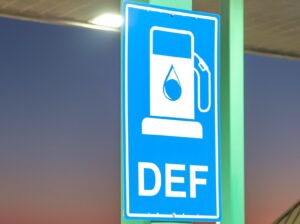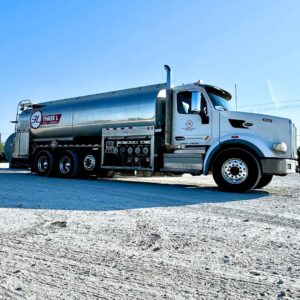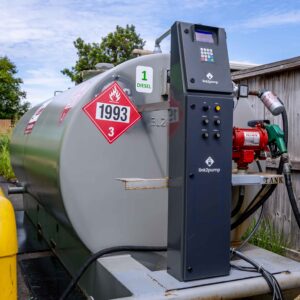
Benefits of Recycling Used Oil
While it may seem like a waste product, used oil offers numerous advantages, and repurposing it not only protects the environment but also delivers other significant benefits, which we will discuss in this article.
Diesel is a vital fuel source across many industries around the world. Due to state and federal regulations, there are two types of diesel: on-road and off-road. Understanding the differences between the two is integral for any business that relies on diesel fuel. Though chemically they are the exact same, there are a few key differences that they have.
On-road diesel is also known as clear diesel and highway diesel. It is intended for vehicles that operate on public roads, such as passenger cars, SUVs, and small trucks that regularly traverse public highways. It is taxed, so it tends to be more expensive than off-road (dyed) diesel. Clear diesel is easily accessible for on-road motorists. It is the green handle that you see at every gas station. If you used red diesel on the road, you can be heavily fined.
Off-road diesel is also known as dyed diesel, ultra-low sulfur diesel, and farm diesel. It is intended for vehicles, machinery, and equipment that don’t typically operate on public roads, such as those in the construction and agricultural industries. It is not taxed, so it tends to be cheaper than on-road (clear) diesel. It’s also illegal to use in on-road vehicles, like consumer cars. Unlike on-road diesel, off-road diesel isn’t available for open sale to the general public. It’s must be purchased through a licensed diesel supplier.
Because off-road diesel is state and federally tax-exempt, it is dyed red so it is distinguishable from on-road (clear) diesel. Because dyed diesel is illegal to use on public roads, it makes it easier for governing bodies to identify it for tax-purposes.
As mentioned above, off-road diesel is state and federally tax-exempt, making it a cheaper fuel source. It is tax-exempt primarily because it is used in non-highway vehicles and equipment, such as farm machinery, construction equipment, and other industrial machinery. These vehicles and equipment do not use public roads, so they do not contribute to the wear and tear of highways and infrastructure funded by fuel taxes. As a result, governments exempt off-road diesel from the taxes imposed on regular diesel, which are intended to fund the maintenance and construction of public roadways.
Here are a couple of key reasons for this tax exemption:
Non-Road Use: The diesel is used in activities like farming, construction, and other industrial operations that do not involve public roadways, so it’s considered fair to exempt it from road taxes.
Support for Agriculture and Other Industries: Exempting off-road diesel from taxes helps reduce operating costs for farmers and industries that rely heavily on fuel for machinery, making these sectors more competitive and supporting economic stability.
In summary, off-road diesel is tax-exempt because it is not used in the transportation network that fuel taxes are designed to support.
Diesel powers many vehicles, from every-day trucks, school buses, trains, and even boats. But vehicles that don’t operate on public roads use off-road diesel. Some of the most common industries using dyed-diesel include construction, agriculture, mining, railroad, and carnivals and county fairs. Generators also primarily use off-road diesel.
If you are a company in need of reliable bulk on or off-road diesel deliveries, get in contact with us! One of our industry experts will help guide you through all of our product and service offerings.

While it may seem like a waste product, used oil offers numerous advantages, and repurposing it not only protects the environment but also delivers other significant benefits, which we will discuss in this article.

Diesel Exhaust Fluid is an integral part of engines that run off of diesel. In this article, we will discuss what DEF is and answer some of the most common questions regarding it.

Fuel is the lifeblood of construction and mining operations. Heavy-duty machinery, generators, and transport vehicles need consistent, reliable fuel supplies to keep the operation running smoothly and prevent costly downtimes. In this article, we’ll explore the critical role that job site fuel delivery plays in the construction and mining sectors and how it contributes to operational success.

Learn how bulk fuel delivery drives efficiency and cost savings in certain industries that rely on it.

Fuel management systems are a great resource for companies that operate with a fleet of vehicles. In this article, we will talk about some of the benefits of having a fuel management system in place.